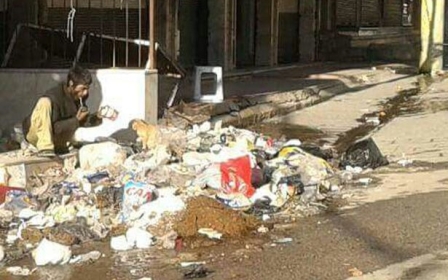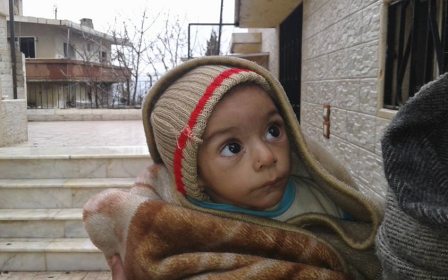Syrian government to allow aid into besieged and starving town: UN

The Syrian government has said it will allow food aid into the besieged town of Madaya, the UN's office for humanitarian co-ordination said on Thursday afternoon.
The office said in a statement that it would begin delivering humanitarian aid to the town and two other besieged sites after gaining approval from the government of President Bashar al-Assad.
"The UN welcomes today’s approval from the government of Syria to access Madaya, Foah and Kefraya, and is preparing to deliver humanitarian assistance in the coming days."
However the statement noted that the UN had "received credible reports of people dying from starvation [in Madaya] and being killed while trying to leave”.
The UN had faced calls to act after local doctors said dozens of people in the town of 40,000 had died of starvation during a six-month long siege.
Local activists say the town is surrounded by landmines, and that snipers shoot those who try to leave to look for food.
Doctors Without Borders, or MSF, said it welcomed the reports but said a delivery of medicine was needed immediately.
According to MSF about 20,000 lives are threatened and 23 patients in the health centre supported by the group have starved to death since December. They included children and the elderly, the organisation said.
Brice de le Vingne, the director of operations at MSF, said the conditions in the city were "a clear example of the consequences of using siege as a military strategy”.
“Now that the siege has tightened, the doctors we support have empty shelves and increasing lines of starving and sick patients. Medics are even resorting to feeding severely malnourished children with medical syrups as they are the only source of sugar and energy, accelerating the consumption of the few remaining medical supplies."
“Madaya is now effectively an open-air prison for an estimated 20,000 people, including infants, children and elderly. There is no way in or out, leaving the people to die."
Hezbollah, the main group accused of keeping the town under siege, issued a statement on Thursday denying that anyone in Madaya is starving to death.
"Tens of trucks carrying food and medical items entered Madaya on 18 October," the statement said, promising that more aid would enter the town in the coming days.
The Lebanese movement said the town was under the control of 600 anti-government "militants", 90 percent of whom belonged to Ahrar al-Sham and al-Nusra Front, with the remaining 10 percent from the Free Syrian Army.
According to the statement, the militants were using food aid supplies to "extort" residents, who number no more than 23,000.
However, the Hezbollah statement said, reports of siege and famine in the town were part of a "mendacious media campaign" by Assad's opponents.
The Syrian National Coalition, one of the main opposition political blocs in Syria, had warned on Thursday of a “humanitarian disaster” facing residents of Madaya.
In a letter addressed to the UN and the Arab League, the coalition demanded the implementation of UN Security Council Resolution 2139, passed unanimously in February 2014 to ensure that all parties in the conflict allow the delivery of humanitarian assistance.
France has also spoken out strongly against the siege, calling it “unbearable and unacceptable”.
“France condemns in the strongest terms the siege imposed on the town of Madaya by the Syria regime,” Foreign Ministry spokesperson Roman Nadal told a press briefing in Paris on Wednesday evening.
The ministry called for the siege to be lifted immediately in accordance with international law.
Local doctors had previously accused the UN of inaction over the siege. Amir Burhan, who runs a field hospital in Zabadani, just north of Madaya, told local pro-opposition Syria Now news service that a UN official had responded to earlier appeals for help by saying that all staff were on holiday for Christmas.
Middle East Eye propose une couverture et une analyse indépendantes et incomparables du Moyen-Orient, de l’Afrique du Nord et d’autres régions du monde. Pour en savoir plus sur la reprise de ce contenu et les frais qui s’appliquent, veuillez remplir ce formulaire [en anglais]. Pour en savoir plus sur MEE, cliquez ici [en anglais].





